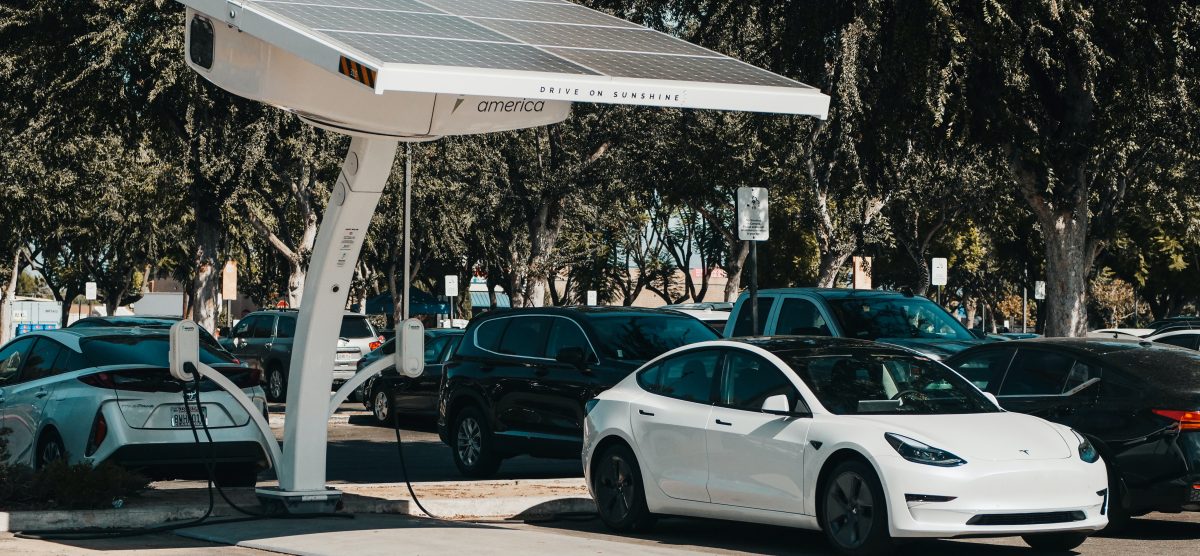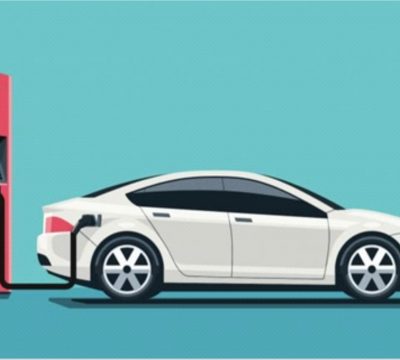Are Electric Cars Coming to Nigeria Today: All You Need To Know

Electric vehicles (EVs) are gaining momentum all over the world as a sustainable and eco-friendly transportation option. In this blog post, we will delve into the current state of electric vehicles in Nigeria, including government initiatives, private sector contributions, infrastructure development, benefits, challenges and the future prospects of EV adoption in the country. Discover how Nigeria is embracing the electric vehicle revolution and the potential benefits it holds for the nation’s sustainable development goals.
Overview of Electric Cars
Electric cars, also known as electric vehicles (EVs), are automobiles that run on electricity instead of traditional fuels like petrol or diesel. They are powered by electric motors and use rechargeable batteries as their energy source. Electric cars offer several advantages over conventional vehicles, such as lower emissions, reduced dependence on fossil fuels, and lower operating costs.
Current Status of Electric Cars in Nigeria
The presence of electric vehicles in Nigeria is still relatively limited, but there are notable players in the market. Stallion Group, a leading automotive company, has introduced electric cars to the Nigerian market. Additionally, Jet Motor Company has launched motorized tricycles powered by electricity. These initiatives demonstrate the growing interest in electric vehicles in Nigeria.
However, several challenges hinder the widespread adoption of EVs in the country. High import costs make electric vehicles less affordable for the average Nigerian consumer. Limited charging infrastructure is another significant obstacle, as there are currently only a few charging stations available. Furthermore, low consumer awareness and misconceptions about electric vehicles contribute to the slow adoption rate.
Government Initiatives for Electric Vehicles in Nigeria
The Nigerian government has recognized the importance of electric vehicles and has implemented the National Automotive Industry Development Plan (NAIDP). This plan aims to develop a robust automotive industry in Nigeria, including the production and assembly of electric vehicles. The government’s vision is to have at least 30% of vehicles on Nigerian roads powered by electricity by 2031.
The NAIDP provides incentives and support for local electric vehicle production, including tax breaks and favourable policies. It also encourages research and development in the electric vehicle sector. By promoting domestic production, the government aims to reduce reliance on imported vehicles and create job opportunities in the automotive industry.
Private Sector Initiatives for Electric Vehicles
The private sector in Nigeria is also actively contributing to the growth of electric vehicles. Phoenix Renewables Limited, a Nigerian renewable energy company, is playing a significant role in developing electric vehicle charging infrastructure. The company is working on establishing a network of charging stations across the country to address the current lack of infrastructure.
Collaborations between Nigerian, Israeli, and Japanese companies have also been formed to establish local electric vehicle production facilities. These partnerships aim to leverage the expertise and technology of international companies to kickstart the local electric vehicle manufacturing industry. Such initiatives not only contribute to job creation but also promote self-reliance and technological advancement in Nigeria.
Opportunities and Benefits of Adopting Electric Cars in Nigeria
- Reduced Dependence on Fossil Fuels
Electric cars offer the opportunity to reduce Nigeria’s dependence on fossil fuels for transportation. Nigeria, like many countries, heavily relies on imported petroleum products for its transportation needs. By transitioning to electric cars, which run on electricity from renewable sources, Nigeria can decrease its reliance on imported fossil fuels, enhance energy security, and reduce the impact of fluctuating global oil prices.
- Environmental Benefits and Improved Air Quality
Electric cars produce zero tailpipe emissions, which helps mitigate air pollution and improve air quality. In Nigeria, major cities often suffer from high levels of air pollution, which have detrimental effects on public health. By adopting electric cars, Nigeria can significantly reduce harmful pollutants, such as nitrogen oxides and particulate matter, leading to improved air quality and better respiratory health for its citizens.
- Job Creation and Economic Growth
The adoption of electric vehicles presents an opportunity for job creation and economic growth. Nigeria can establish a robust domestic electric vehicle manufacturing industry, creating employment opportunities across the value chain, including assembly, manufacturing, research and development, and component production. This would not only contribute to job creation but also stimulate economic growth and promote technological advancements in the country.
- Sustainable Development Goals
Electric cars align with Nigeria’s sustainable development goals. By transitioning to clean and sustainable transportation, Nigeria can contribute to global efforts to mitigate climate change, reduce greenhouse gas emissions, and promote sustainable development. Electric vehicles offer a pathway to achieving targets outlined in international agreements like the Paris Agreement and Nigeria’s commitment to reducing carbon emissions.
- Energy Diversity and Integration of Renewable Energy
The adoption of electric vehicles provides an opportunity to integrate renewable energy sources into the transportation sector. Nigeria has abundant renewable energy resources, including solar and wind. By coupling the growth of electric cars with renewable energy generation, excess electricity generated from renewable sources can be used to charge electric vehicles. This synergy supports energy diversity, reduces reliance on fossil fuels, and enhances the overall sustainability of the energy system.
To fully realize these opportunities and benefits, Nigeria can leverage supportive policies, incentives, and partnerships to promote electric vehicle adoption. These may include tax incentives for electric vehicle purchases, subsidies for charging infrastructure development, research and development grants, and collaborations with renewable energy companies to facilitate the integration of renewable energy sources into the electric vehicle ecosystem.
Challenges Nigeria Faces in Adopting Electric Cars
While Nigeria has immense potential for electric vehicle adoption, several challenges need to be addressed. Here are some of them:
- Limited Charging Infrastructure
One of the significant challenges is the limited charging infrastructure in Nigeria. The availability of charging stations is essential for electric vehicle adoption as it ensures convenient and accessible charging for EV owners. Currently, there are only a few charging stations across the country, making it inconvenient for EV users to find suitable places to charge their vehicles. The lack of an extensive charging network poses a barrier to the widespread adoption of electric cars.
- High Import Costs
Another challenge is the high import costs associated with electric vehicles. Electric cars are often more expensive than traditional petrol/diesel vehicles due to various factors such as battery technology and limited economies of scale. These higher costs make electric vehicles less affordable for the average Nigerian consumer, limiting their accessibility and adoption. Addressing import costs and encouraging local production can help reduce the price gap and make electric vehicles more accessible to a broader population.
- Affordability and Access to Financing
In addition to high import costs, the affordability of electric cars is a significant concern in Nigeria. Many consumers may find it challenging to afford the upfront cost of purchasing an electric vehicle. Lack of access to favourable financing options, such as low-interest loans or lease programs specific to electric vehicles, further limits the affordability for potential buyers. Developing financial mechanisms and partnerships that provide affordable financing options can help overcome this challenge.
- Insufficient Power Supply and Reliability
Nigeria faces challenges with its power supply and reliability, which can impact the adoption of electric cars. Electric vehicles require a reliable and stable power grid to ensure uninterrupted charging. However, power outages and inconsistent electricity supply in some areas can hinder the widespread adoption of electric vehicles. Addressing these issues and ensuring a reliable power supply across the country will be crucial to support the charging needs of electric vehicle owners.
- Consumer Awareness and Education
Low consumer awareness and limited knowledge about electric vehicles pose a challenge to their adoption in Nigeria. Many consumers may not fully understand the benefits, technology, and operation of electric cars. Misconceptions and lack of awareness about electric vehicles, such as concerns about range anxiety or battery life, can deter potential buyers. Educating the public about the advantages, dispelling myths, and highlighting the long-term cost savings and environmental benefits of electric vehicles can help overcome these barriers.
What the Future Holds
Despite the challenges, the future of electric vehicles in Nigeria looks promising. With the government’s commitment to the NAIDP and increasing private sector interest, the electric vehicle market is expected to grow significantly in the coming years. The benefits of widespread EV adoption, such as reduced carbon emissions, improved air quality, and reduced dependence on fossil fuels, make it an attractive option for Nigeria’s sustainable development goals.
However, to achieve this growth, it is crucial to address challenges such as high import costs, limited charging infrastructure, and consumer awareness. Continued investment in charging infrastructure, public education campaigns, and favourable policies can accelerate the adoption of electric vehicles in Nigeria.
The Bottom Line
In conclusion, electric vehicles are gradually making their way into Nigeria’s automotive landscape. With government initiatives, private sector contributions, and infrastructure development, the country is poised to embrace sustainable transportation. While challenges remain, the potential benefits of electric vehicle adoption in Nigeria are immense.
By addressing these challenges and fostering collaboration between stakeholders, Nigeria can position itself as a leader in electric vehicle production and adoption in Africa. The future of electric vehicles in Nigeria holds great promise for a greener and more sustainable transportation system.




